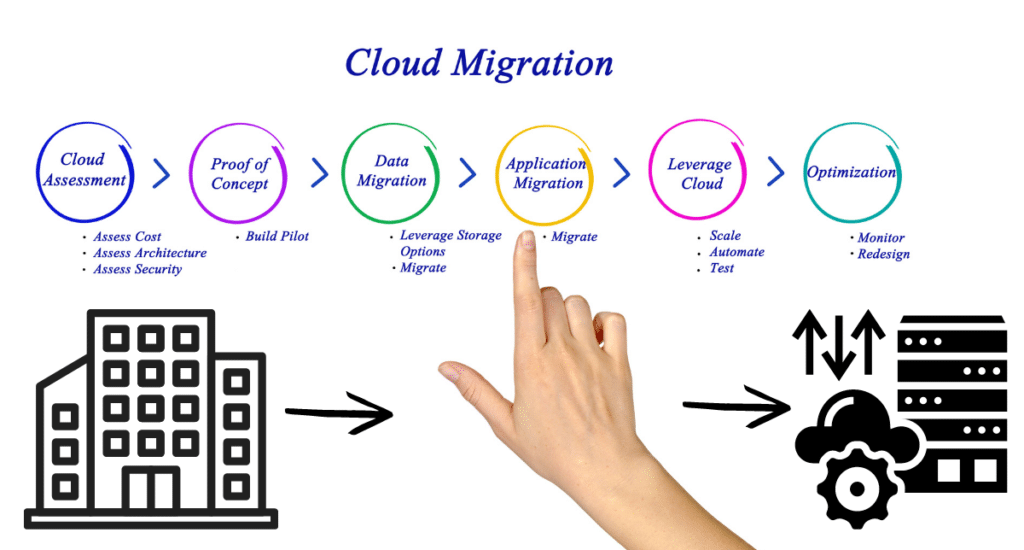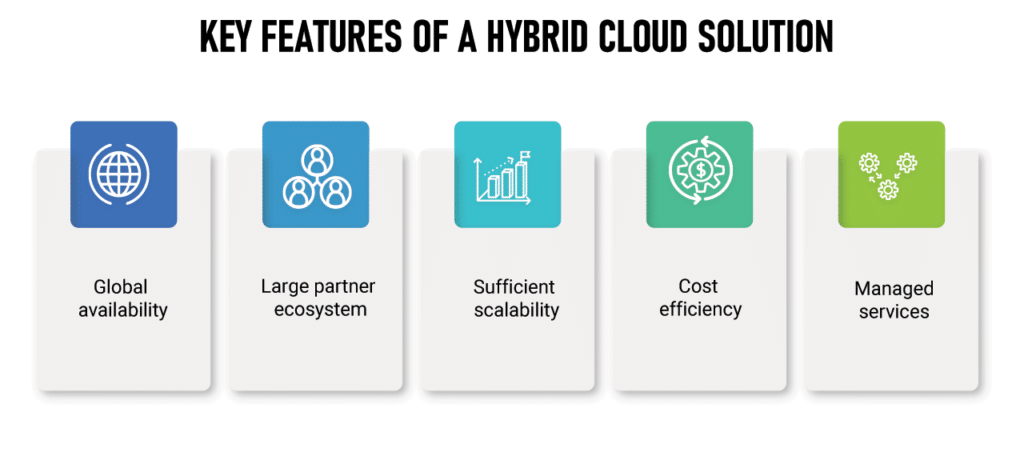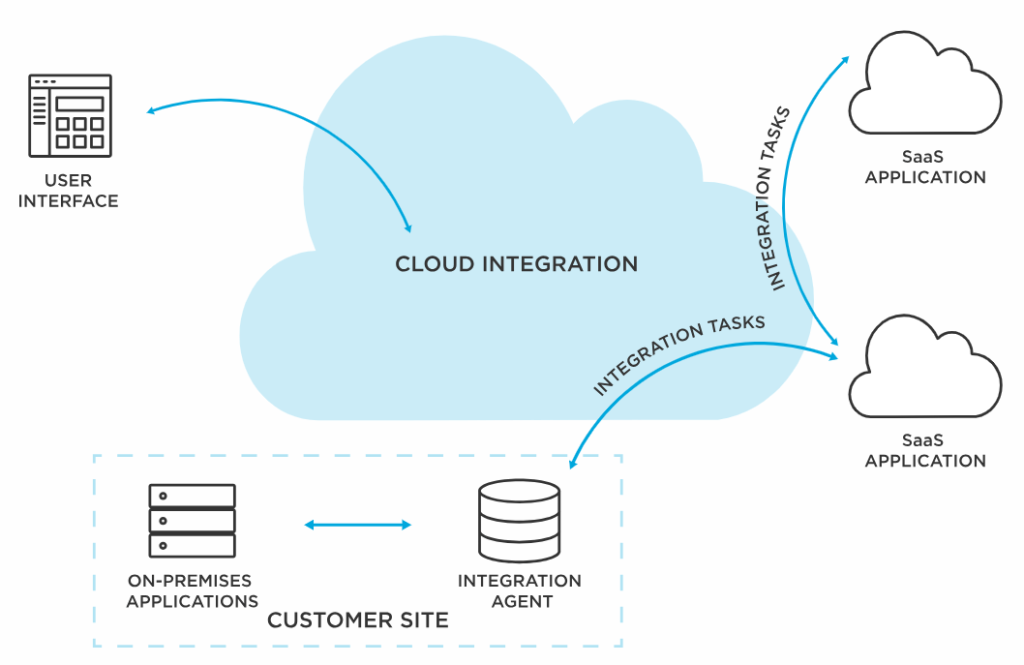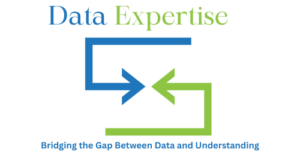Introduction
Welcome to our comprehensive guide on cloud data management. This blog will delve into the essential components of managing data in the cloud, including migration strategies, storage solutions, and analytical techniques. We’ll explore how businesses can leverage cloud technology to enhance their data management capabilities, supported by real-world examples and best practices.
- Focus on Cloud Data Management: Optimizing cloud resources for efficiency and insights.
- Strategic Approach: Navigating the digital landscape with cloud data solutions.
Data Migration to the Cloud

Migrating data to the cloud storage is the first step in cloud data management. This process involves transferring data from on-premises storage to cloud storage solutions. It’s crucial to plan this migration carefully to minimize downtime and data loss. Strategies like phased migration or using cloud data migration tools can ensure a smooth transition.
- Migration Planning: Assessing data and choosing the right migration strategy.
- Tools and Techniques: Leveraging cloud migration tools for efficiency.
Choosing the Right Cloud Provider
Selecting a cloud provider that aligns with your business needs is crucial. Factors like data transfer speeds, storage capacity, and cost should be considered. For instance, a business with large datasets might prioritize providers offering high-speed data transfer capabilities.
Post-Migration Optimization
After migrating data to the cloud, it’s important to optimize the cloud environment for performance and cost. This includes regular monitoring of cloud resources, optimizing data storage, and implementing auto-scaling to ensure efficient use of cloud services.
Cloud Storage Solutions
Once data is migrated, selecting the right cloud storage solution is key. Cloud storage offers scalable, flexible, and cost-effective options compared to traditional storage. Understanding different storage types like object storage, file storage, and block storage can help businesses choose the right solution based on their data needs.

Hybrid Cloud Storage: For businesses requiring both on-premises and cloud storage, hybrid cloud solutions offer a balance. They provide the security of on-premises storage and the scalability of cloud storage, making them ideal for businesses with dynamic storage needs.
Disaster Recovery and Backup: Cloud storage plays a vital role in disaster recovery and backup strategies. By storing backups in the cloud, businesses ensure data availability and business continuity in case of on-premises data loss or system failures.
Data Security and Compliance in the Cloud
Data security and compliance are paramount in cloud data management. Implementing robust security measures like encryption, access controls, and regular security audits can protect data from breaches. Additionally, ensuring compliance with regulations like GDPR or HIPAA is crucial for businesses handling sensitive data.
Continuous Monitoring and Incident Response: Implementing continuous monitoring and having a robust incident response plan are essential for maintaining cloud data security. This proactive approach helps in quickly identifying and mitigating security threats.
Employee Training and Awareness: Educating employees about cloud security best practices is crucial. Regular training sessions can help in preventing data breaches caused by human errors or lack of awareness.
Cloud Data Analytics
Cloud data analytics involves analyzing data stored in the cloud to gain insights. Cloud platforms offer powerful analytics tools that can process large volumes of data efficiently. Businesses can leverage these tools for predictive analytics, real-time analytics, and big data processing.
- Analytics Tools: Utilizing cloud-based analytics for business insights.
- Big Data Processing: Handling large datasets with cloud analytics.
- Leveraging AI and Machine Learning: Many cloud platforms offer AI and machine learning capabilities that can be integrated with cloud data analytics. These technologies can provide deeper insights, predictive analytics, and automate complex data analysis tasks.
- Custom Analytics Solutions: Businesses can also develop custom analytics solutions in the cloud to meet specific requirements. Cloud platforms provide the flexibility and resources to build tailored analytics applications.
Integrating Cloud Data with Business Processes

Integrating cloud data with business processes is crucial for maximizing the benefits of cloud data management. This integration allows for real-time data access, improved collaboration, and better decision-making. Using APIs and integration tools can seamlessly connect cloud data with various business applications.
- Automating Workflows with Cloud Data: Cloud data can be used to automate business workflows. By integrating cloud data with automation tools, businesses can streamline processes, reduce manual efforts, and improve efficiency.
- Enhancing Customer Experience: Integrating cloud data with customer-facing applications can enhance customer experience. For example, using cloud data to personalize customer interactions on websites or mobile apps.
- Real-Time Access and Collaboration: Enhancing business processes with cloud data.
- APIs and Integration Tools: Connecting cloud data with business applications.
Conclusion
Cloud data management is a critical aspect of modern business operations. By understanding and implementing these five key aspects, businesses can effectively migrate, store, and analyze data in the cloud, leading to improved efficiency, insights, and competitive advantage. As cloud technology continues to evolve, staying abreast of the latest trends and best practices in cloud data management will be essential for businesses looking to thrive in the digital era.
- Future Trends: Keeping up with evolving cloud data management technologies.
- Leveraging Cloud for Competitive Advantage: Utilizing cloud data for business growth.
In summary, cloud data management is a multifaceted discipline that requires careful planning, execution, and ongoing management. As businesses continue to embrace digital transformation, the role of cloud data management becomes increasingly integral. Staying informed about the latest developments in cloud technologies and best practices will be key to leveraging the full potential of cloud data management. The future of cloud data management promises more innovation, integration, and intelligence, paving the way for businesses to achieve new heights of efficiency and growth.




It’s perfect time to make a few plans for the future and it’s time to be happy.
I have learn this publish and if I could I desire
to counsel you some fascinating things or suggestions. Perhaps you
could write subsequent articles referring to this article.
I desire to learn even more things about it!